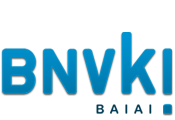The Foundation for Knowledge Based Systems (SKBS) continued their policy of awarding the SKBS prize to the best demonstration of the Demo-session of the BNAIC 2019.
The 2019 referee committee consisted of Arnoud Visser (UvA), Bart Verheij (University of Groningen), Celine Vens (KU Leuven-campus Kortrijk), Robin Manhaeve (KU Leuven), Guillaume Derval (UC Louvain).
The referee committee had to consider ten submissions which were eligible for the SKBS prize. In Table 1 we list them by topic (in the order of their publication in the Conference Program BNAIC 2019).
| Denis Steckelmacher, Hélène Plisnier and Ann Nowé | A Motorized Wheelchair that Learns to Make its Way through a Crowd |
| Youri Coppens, Eugenio Bargiacchi and Ann Nowé | A Virtual Maze Game to Explain Reinforcement Learning |
| Pierre Carbonnelle, Bram Aerts, Marjolein Deryck, Joost Vennekens and Marc Denecker | An Interactive Consultant |
| Tom Vander Aa, Tom Ashby and Roel Wuyts | Virtual Screening on FPGA |
| Willem Röpke, Roxana Radulescu, Kyriakos Efthymiadis and Ann Nowe | DuStt – a Speech-to-Text Engine for Dutch |
| Habib-Ur-Rehman Khalid, Sofie Pollin, Thomas Gielen, Hans Cappelle, Miguel Glassee, Andre Bourdoux and Hichem Sahli | Gesture Recognition with an FMCW Radar |
| Jessica Coto Palacio, Yailen Martínez Jiménez and Ann Nowe | Multi-Agent Reinforcement Learning Tool for Job Shop Scheduling Problems |
| Jens Nevens, Paul Van Eecke and Katrien Beuls | Interactive Learning of Grounded Concepts |
| Selma Yilmazyildiz Kayaarma, Sherik Lehal and Hichem Sahli | Politeness Detection in Speech for Human-Computer Interaction |
| Jens Claes, Bart Bogaerts, Rocsildes Canoy, Emilio Gamba and Tias Guns | ZebraTutor: Explaining How to Solve Logic Grid Puzzles (Demo) |
Table 1: The 2019 candidates of the SKBS prize.
In 2019, ten submissions were exhibited in the “Halle aux Fûts” (Ateliers des Tanneurs) for the SKBS prize. All demos were of a high quality, but varying in type, ranging from educational demonstrations that were aimed at explaining AI techniques to the general public, through hardware-oriented demonstrations, to AI research demonstrations covering a multitude of AI methodologies and techniques. The jury (referee committee) was given the task to take the following items into consideration by scoring them between 1 and 5: (a) relation to AI, (b) originality, (c) applicability (or is it already a (full-fledged) application?), (d) does it contribute to the further development of AI?, (e) the generalisability to other AI applications/domains, and (f) the contribution to Society (Valorisation).
All in all, the referee committee had a difficult task. There were three demonstrations that stood out for the five jury members. We then calculated the average scores they gave to all demonstrations, and indeed the same three demonstrations made up the top 3 in the overall ranking. The final scores were very close to each other.
The first prize was assigned to Dennis Steckelmacher, Hélène Plisnier and Ann Nowé for the demo A Motorized Wheelchair that Learns to Make its Way through a Crowd.
The prize is €500,- and has been awarded to the Reinforcement Learning team of the AI Lab of the Vrije Universiteit Brussel.
In Table 2 we provide an overview of the winners of the SKBS prize so far.
| 1999 Maastricht
M. van Wezel, J. Sprenger, R. van Stee, and H. La Poutré Neural Vision 2.0 – Exploratory Data Analysis with Neural Networks |
| 2000 Kaatsheuvel (shared prize)
E. Zopfi HKT G. Schram LubeSelect |
| 2001 Amsterdam
Alexander Ypma, Rob Kleiman, Jan Valk, and Bob Duin MINISOM – A System for Machine Health Monitoring with Neural Networks |
| 2002 Leuven
F. Brazier, D. Mobach, and B. Overeinder AgentScape Demonstration |
| 2003 Nijmegen
Bert Kappen, Wim Wiegerinck, Ender Akay, Marcel Nijman, Jan Neijt, and André van Beek Promedas: A Diagnostic Decision Support System |
| 2004 Groningen
Wouter Teepe The Secret Prover: Proving Possession of Arbitrary Files While not Giving Them Away |
| 2005 Brussels
Gerald de Jong Fluidiom: The Evolution of Locomotion |
| 2006 Namur
Marion Verduijn, Niels Peek, Peter Rosseel, Evert de Jonge, and Bas de Mol Procarsur: A System for Prognostic Reasoning in Cardiac Surgery |
| 2007 Utrecht
Tim Harbers, Rob van der Veen, Marten den Uyl Sentient Demonstration BNAIC 07: Vicavision |
| 2008 Enschede (shared prize)
Joris Maervoet, Patrick De Causmaecker, and Greet Vanden Berghe A Generic Rule Miner for Geographic Data and Dennis Reidsma and Anton Nijholt Temporal Interaction between an Artificial Orchestra Conductor and Human Musicians |
| 2009 Eindhoven
Tom van Bergen, Maarten Brugmans, Bart Dohmen and Niels Molenaar Cobes: The clean, safe and hospitable metro |
| 2010 Luxembourg
Willem Burgers, Wim Wiegerinck, and Bert Kappen Disaster Victim Identification System |
| 2011 Ghent
Wim Vancroonenburg, Jannes Verstichel, Greet Vanden Berghe, and Wouter Souffriau Efficient aircraft loading: a mixed integer programming approach for the aircraft weight and balance problem |
| 2012 Maastricht
Michel Klein, Nataliya Mogles, and Arlette van Wissen Demonstration of eMate – Stimulating Behaviour Change via Mobile Phone |
| 2013 Delft
Sjriek Alers, Daniel Claes, Joscha Fossel, Daniel Hennes, and Karl Tuyls Applied Robotics: Precision Placement in RoboCup@Work |
| 2014 Nijmegen
Steffen Michels, Marina Velikova, Bas Huijbrechts, Peter Novak, Jesper Hoeksma, Roeland Scheepens, Jan Laarhuis, and André Bonhof Enhancing Operational Work in Maritime Safety-and-Security Tasks. |
| 2015 Hasselt
Wiebe van Ranst and Joost Vennekes Ultra-low-latency Endoscopic Image Stabilisation |
| 2016 Amsterdam
Caitlin Lagrand, Patrick M. de Kok, Sébastien Negrijn, Michiel van der Meer and Arnoud Visser Autonomous robot soccer matches |
| 2017 Groningen Dennis Steckelmacher, Hélène Plisnier, Diederik M. Roijers and Ann Nowé Hierarchical Reinforcement Learning for a Robotic Partially Observable Task |
Table 2: Overview of SKBS prizes.
